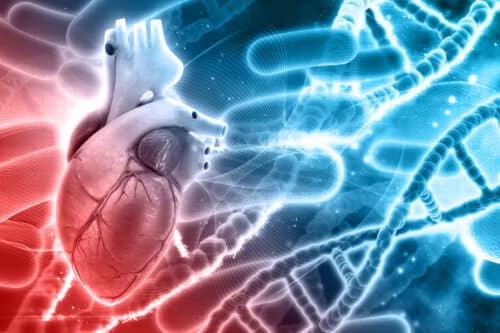This is according to a study by researchers at the Rappaport Faculty of Medicine at the Technion * According to the findings, already at an early stage of heart disease (pre-heart failure), when it does not yet directly endanger the patient, a mechanism is activated that encourages the development of cancer cells, including metastases

Researchers at the Rappaport Faculty of Medicine at the Technion and their colleagues at the Rambam and Carmel hospitals present for the first time the course of the influence of disruptions in the heart system on cancer development. According to the findings, already at an early stage of heart disease (pre-heart failure), when it does not yet directly endanger the patient, a mechanism is activated that encourages the development of cancer cells, including metastases.
The research published in the journal Circulation was led by Dr. Shamrit Avraham and professors Yuval Shaked and Ami Ahronheim from the Rappaport Faculty of Medicine at the Technion. In their estimation, the research may lead to the prevention of aggravation of cancer development by indirect means - by promoting heart treatments in the early stage of heart disease, where it does not yet directly endanger the patient.
In recent years, the connection between cancer and heart disease has become more and more clear, and this is the basis for the development of a new field of research called cardio-oncology. Among other things, it is now known that certain anticancer drugs also create cardiotoxicity, which can lead to cardiovascular problems, including heart failure, myocardial infarction, arrhythmias, blood clots and hypertension.
The relationship between cancer and heart disease also works in the opposite direction - the signals released by the heart in the event of cardiovascular distress may encourage and accelerate cancerous processes. The current study reveals that, moreover, even initial changes in the cardiovascular system and especially in the heart - changes that do not yet indicate heart disease - may encourage the growth of cancerous tumors and metastases. According to Prof. Ahronheim, "In the case of stenosis of the aortic valve, the heart works against high pressures and undergoes a process of cardiac remodeling - reprogramming of its activity. The heart secretes proteins that, among other things, encourage cell division, similar to the uncontrolled cell division that characterizes cancerous tumors."
Technion researchers not only identified the aforementioned process but also discovered one of the factors linking cardiac remodeling to the accelerated division of cancer cells. This factor is a secreted protein called Periostin, which plays a central role in the adhesion of cells and their migration - to different tissues in the body. They showed that cardiac distress causes an increased release of periostin into the bloodstream, which leads to an acceleration of cell division.
The research was conducted in two arms: one - work on models of breast cancer and lung cancer in mice, and the other - analysis of a huge body of data from heart patients and cancer patients. This is information on about 80 heart patients, collected over about 18 years by Prof. Avinaam Sheeran, a senior cardiologist at Carmel Hospital. This data was processed and cross-referenced with information from the Israeli Cancer Database by Prof. Valid Saliva, an epidemiologist at Carmel Hospital. This is how the researchers verified the hypothesis that cardiac problems, even in their initial stages - and especially in young patients (60-40) - encourage the development of cancerous tumors and cancerous metastases and harm the body's ability to deal with them. According to Prof. Ahronheim, "Following the study, we recommend considering treating heart problems even at an early stage, when the body is still successfully dealing with the problem, and not waiting for an acute situation. Such problems can be discovered with a simple echocardiogram, and it is possible that in many cases, catheterization at an early stage will not only help the heart but also prevent cancerous developments."
The research was supported by the National Science Foundation (ISF).
More of the topic in Hayadan:
- New technology for locating corona patients and warning of critical breathing problems - a development by researchers at the Technion and Rambam
- Heart cells grown from induced stem cells will serve as a model for testing the effect of drugs to balance heart rhythm
- Researchers have developed a "switch" that activates the immune system to attack cancer cells when it detects signs of the disease
